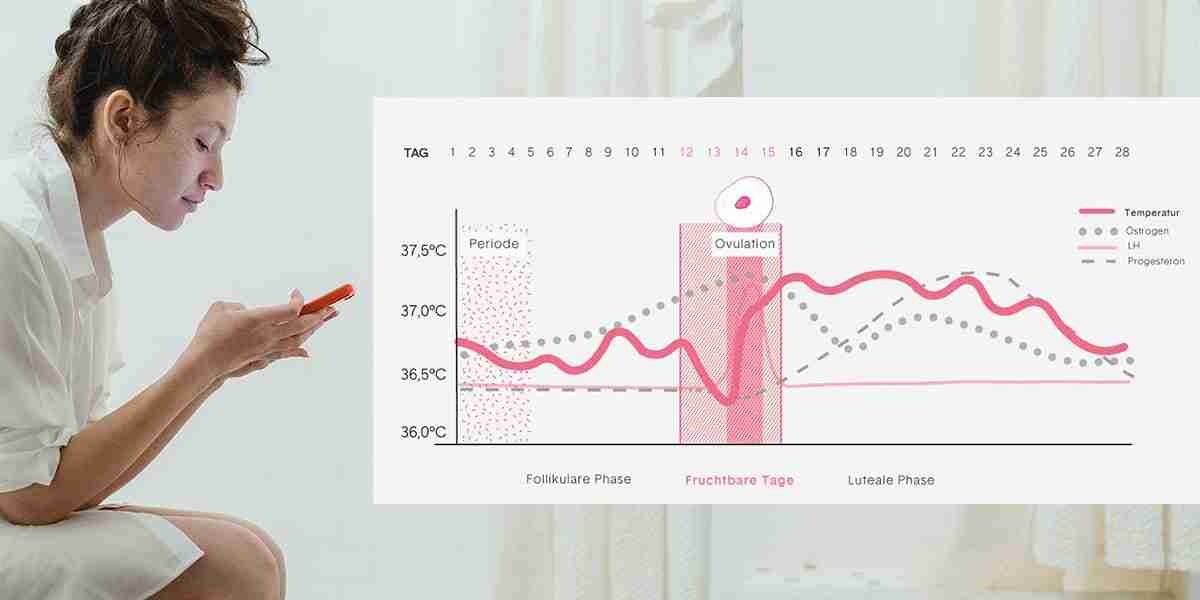
Can you really smell a woman's fertile days?
It is said that a couple must be able to "smell each other well". But can a man actually "sniff out" a woman's fertile days? We have investigated.
When we snuggle up to our partner in bed at night, we love it even more when they smell good. By that we don't mean perfume or aftershave, but the very own body odour that each of us has. Supposedly, the odour of another person is even a decisive factor in finding a partner in order to achieve the best possible "genetic match". In other words: always follow your nose when choosing a partner!
In matters of Get pregnant this evolutionary bag of tricks goes even further. Allegedly, men can "sniff out" a woman's fertile days and then find her even more attractive! But is this really true?
Changed body odour thanks to oestrogens
Swiss researchers say: Yes! And oestrogens, the female sex hormones, are "to blame". They are produced around the fertile days are released more strongly than on other days of the cycle and stimulate ovulation. The change in hormone levels is then also reflected in the woman's body odour.
A study at the University of Bern involving a total of 28 women and 57 men proved that women smell more attractive on their fertile days. The test subjects had to follow a very strict protocol: They were not allowed to use hormonal contraception, wash with perfumed shower gel or sleep in the same bed as others.
In addition, the women had to stick cotton pads in their armpits, which absorbed their odour and were "presented" to the men. Their cycle status was determined by taking a blood sample.
The result: the women who were close to ovulation and therefore fertile days tended to smell more attractive to the men. The higher the oestrogen level in the women's blood, the better the male study participants rated the odour sample. There are purely evolutionary reasons for this: Because the reproductive instinct is still firmly anchored in most of us. Attractive body odour therefore alerts men to the fact that a woman is fertile and ready to reproduce.
Incidentally, the study also showed that the genetic factor is not decisive for men's judgement. It is always said that you choose your partner based on their odour because it is supposed to tell us something about their genetics and state of health - in other words, whether someone is a suitable reproductive partner for you.
However, the results of the study showed that men did not judge the attractiveness of women or their odour based on this, but purely on their hormone status or cycle status. Typical body odour therefore does not play a major role when choosing a partner - but it does when it comes to "using" ovulation and pass on his own genes. In short: ovulation beats genetics!

Artificial hormones and body odour during fertile days
But why were women not actually allowed to use hormonal contraception? It is suspected that the pill and other hormonal contraceptives can distort a woman's own odour. This is understandable, as most pills supply an artificial form of the hormone progesterone, which permanently prevents ovulation. It is the hormone the second half of the cycle after ovulation. At the same time, oestrogen levels remain permanently low. Too much progesterone, too little oestrogen: even in the study, this combination was not particularly appealing to the male test subjects.
But you've probably also heard of the theory that women who take the pill often choose the "wrong partner" for themselves - and suddenly can't smell him after stopping. Studies have found a slight correlation, but the evidence is too thin to make a definitive judgement. So don't worry: your relationship is not doomed to failure just because you are using artificial hormones for contraception!
And what about the period?
In fact, previous studies have shown that a woman's body odour is at its most intense during menstruation. Men who are particularly sensitive to odours can even perceive this odour. However, this is the exception rather than the rule. And of course, this body odour has nothing to do with your actual hygiene! It is simply genetic and shows that you are currently not fertile or only fertile to a limited extent.
It's interesting what our hormones do in the body! But if you don't want to rely solely on your partner's nose, the following will help you femSense® in the process, narrow down your fertile days. The sensor in the femSense patch uses another bodily sign to determine your ovulation: your temperature. So you know for sure where you are in your cycle - even before your partner can "sniff it out".
Sources:






Steffen
Hello and good day,
I, a man in my late 40s, know this odour. This odour is the same for all women - as I have now discovered, around ovulation (I always suspected this but never googled it).
However, I don't find the smell pleasant. I would describe it as heavy, sweetish and rancid. Well, I haven't sniffed any cotton pads, but I can smell it like that in close proximity or in enclosed spaces such as the car, for example.
Also weiß ich beim nächsten Mal, warum Frauen manchmal so „duften“ 🙂
Best regards
Steffen
PS: I've just asked my wife, she can smell it too. But she doesn't find it pleasant either.